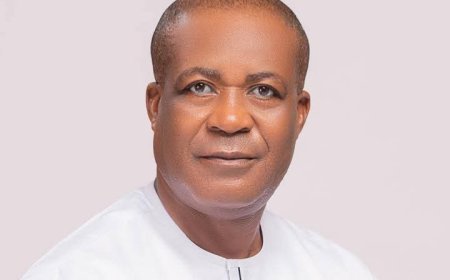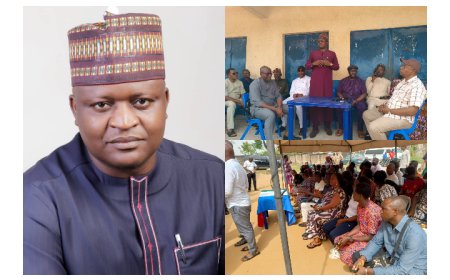OPINION Police Pensioners: Betrayed by the Nation They Served?

By Isaac Aqua
It is a cruel irony that the men and women who dedicated their lives to protecting Nigeria — often at great personal risk — are rewarded in retirement with indignity, poverty, and despair.
For decades, officers of the Nigerian Police Force have stood on the frontlines — confronting armed robbery, terrorism, civil unrest, and other threats to national security. Yet, in retirement, they are abandoned by the very system they served, forced to survive on pensions so meager they barely sustain life.
This is no exaggeration; it’s a grim reality. Retired Deputy Commissioner of Police, Francis Erhabor, laid it bare in a viral interview:
“After 35 years of service… after sleepless nights, wahala, risks taken, promotions delayed, and personal sacrifices made — I received news of the lump sum I would be paid. $5,488.01. That’s what my 35 years as a Deputy Commissioner of Police is worth.”
Let that sink in.
According to activist Omoyele Sowore, who spoke on live television, retired police commissioners in Nigeria receive as little as ₦57,000 monthly. He further noted that junior officers earn as low as ₦19,000 in monthly pensions. Many receive no gratuity, no housing support, and are left to beg or die in silence. These figures do not reflect the dignity of a life spent in service. They reflect betrayal.
A System Designed to Fail
At the heart of the crisis lies the Contributory Pension Scheme (CPS) — a model touted as global best practice but plagued by weak regulation, alleged mismanagement, and systemic fraud. While the military successfully advocated for and secured exemption from the CPS, police personnel remain trapped in a scheme that offers neither financial security nor justice.
Even more disturbing is the quiet exemption of top police brass from the scheme. Assistant Inspectors General (AIGs), Deputy Inspectors General (DIGs), and the Inspector General of Police (IG) are no longer under the CPS. Yet they remain silent while their men suffer. What kind of leadership abandons its own?
Serving officers are not spared either. Many buy their own uniforms, fuel patrol vans from personal funds, and endure extortion from superiors — all while earning paltry wages. They serve under oppressive conditions, only to retire into poverty.
A Protest for Survival
The ongoing #PoliceProtest is not a plea for sympathy — it is a cry for justice. Across cities like Calabar, Abuja, and Lagos, aging police retirees now take to the streets — often in the rain — to demand what should already be theirs: a livable pension and their long-overdue gratuities.
That those who once upheld law and order must now protest to be seen and heard is a national disgrace. A hungry, oppressed policeman cannot protect a free society. No matter our personal opinions of the police, we must rise to amplify their plight.
Their struggle exposes a broader truth: if Nigeria cannot care for its protectors, it has no moral right to demand loyalty or sacrifice from its citizens.
Five Urgent Steps for Reform
The time for rhetoric is over. The Nigerian government must act — decisively and urgently:
1. Exempt the Nigeria Police Force from the CPS. Just as the military was removed, so must the police be.
2. Establish a dedicated Police Pension Board, including civil society and anti-corruption watchdogs, to ensure transparency and accountability.
3. Adjust pension entitlements to reflect inflation, cost of living, and the high-risk nature of policing.
4. Adopt a hybrid pension model that combines the stability of defined benefits with the flexibility of contributions.
5. Conduct a forensic audit of Pension Fund Administrators (PFAs) and prosecute those found to have diverted or mismanaged police pensions.
A Nation’s Gratitude Must Be Real
The story of DCP Erhabor is just one among thousands. Men and women who once stood on the edge of danger for Nigeria are now dying in silence, abandoned by the system they once served with pride.
Instead of honoring their sacrifice, the nation has left them with empty promises and unfulfilled entitlements.
Until we reform this broken pension system, we cannot in good conscience ask the next generation to wear the uniform with pride. We cannot pretend to value security while devaluing those who provide it.
They stood to defend Nigeria. Now, Nigeria must rise to defend them.













































